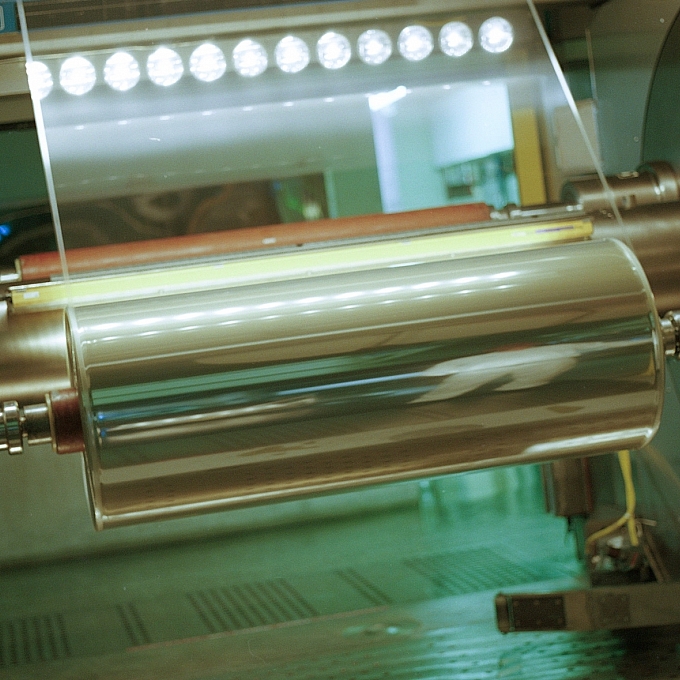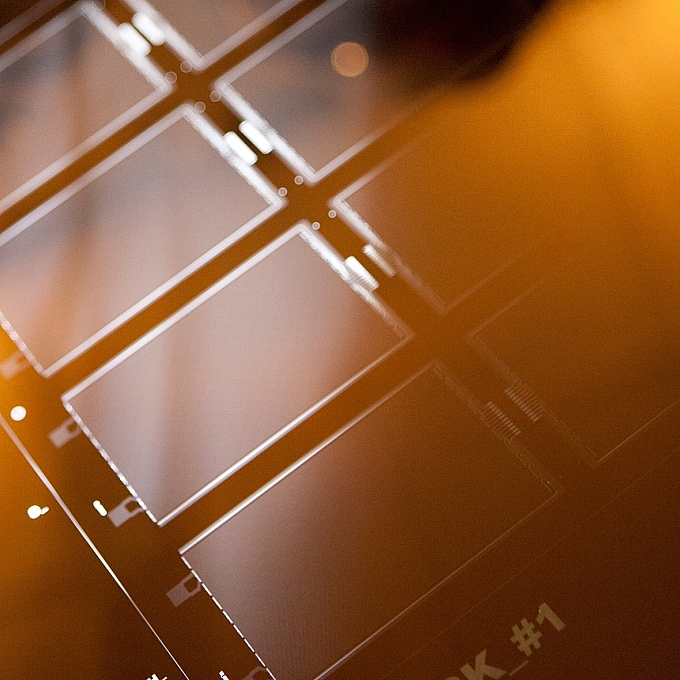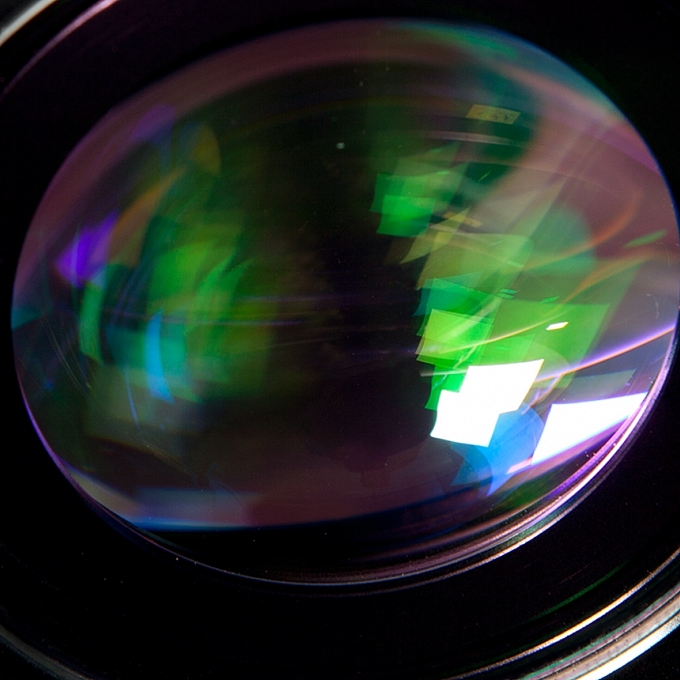
Innovation at Kodak
Deposition Science
Kodak’s practice of deposition science is focused on the invention and development of print engines that control the deposition of novel materials for a variety of commercial and functional print applications. Along with Kodak’s materials design and deep understanding of interfacial physics and chemistry, these engines enable additive printing of graphics and functional materials at a range of scales via contact and non-contact methods.

Research Topic
Contact and Non-Contact Deposition Device Design
Kodak's invention of novel conducting, semi-conducting and dielectric materials expands the application space of functional printing. These materials allow us to mature beyond simple printed electronic solutions for the display industry and enable unique applications in smart packaging and sensor technology. Our proprietary materials are also designed to transform and simplify the processing required to build and scale functional applications.

Research Topic
MEMS
MEMS are Micro Electro Mechanical Systems that are typically fabricated using standard silicon micro-fabrication techniques and specialized micromachining processes. At Kodak, a comprehensive research program includes MEMS design, MEMS process development, and characterization and packaging of MEMS devices. Of special interest are devices that are fabricated using micro-machining processes; these processes can be integrated with traditional silicon microelectronic fabrication to produce fully functional, addressable micro machines. Kodak’s proprietary STREAM continuous inkjet technology is an example of MEMS application.

Research Topic
Laser Writing
Kodak’s laser writing platform is based on proprietary light modulation technology. High resolution is accomplished by modifying the light valve addressability and/or the imaging optics de-magnification power. This platform is leveraged to create diverse, high resolution deposition and writing systems such as thermal transfer or flexographic contact print systems.